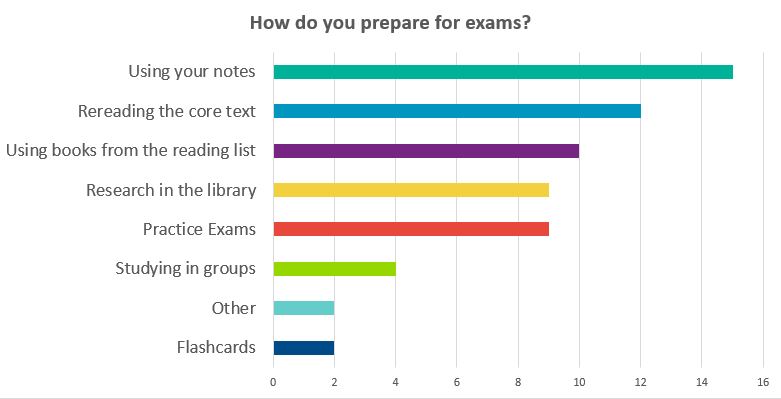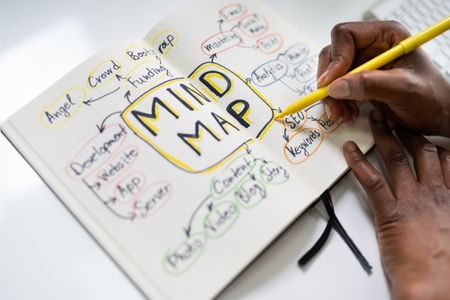Students on the Future of Exams
About Constance: I’m currently studying for my master’s in publishing at University College London, and in 2021 I graduated from Durham University with a degree in English Literature. During the pandemic, I studied remotely back home in Hong Kong and returned to start my master’s course.
Since the start of Covid-19, students and educators have adapted rapidly to changing examination methods, such as online assessment. In June, we conducted a student panel to explore how 17 students from around the world perceive these changes.
How do students prepare for exams and retain information afterwards? Will assessments and learning resources move digitally or remain the same?
Survey Overview
Our student panel is global and includes students at all stages, from first year undergraduates through to PhD students. The participants in this survey were from six different regions: South America, Middle East, Asia Pacific, United Kingdom, North America, and Europe, and included undergraduate, postgraduate, and PhD students.

How do students prepare for exams?
I remember revising for my English Literature exams and using several revision methods: I spent hours making my own notes, mind maps, and flashcards. In this survey, 88% of the participants said ‘using your notes’ was their most popular resource, but I was surprised to find that flashcards were the least popular – only 2 participants, or 12% of the total participants, thought they were useful. For me, handwritten flashcards were the most effective method, because I could remember information more easily with active recall and visual cues.
In terms of revision time, most participants studied at least a few weeks before the exam, but some students said they couldn’t give one set answer, because each exam was different. My experience also varied depending on the exam. Some of my modules were more difficult to prepare for in advance because you were assessed on the spot – for example, being given a literature extract to analyse.

Retaining information after exams
Students generally agreed that interesting subjects were much easier to remember. One participant mentioned it depended on their study method: ‘If it was a subject I am genuinely interested in, then I studied in-depth, so my retention remains at high levels even years after the exam. On the other hand, if I studied only to pass the exam and forget about it, if not interested in the material, then I tend to forget most of it, with at least 50% retention.’
My experience was largely similar – I don’t remember the maths equations or the historical facts that I memorised in secondary school exams; but I still clearly remember the literary theories that I wrote exams on, even three years ago.

Coursework vs. exams
Students had varying views about the relevance of coursework and exams: while some believe that both are ‘equally important’, others think that coursework is starting to play a more dominant role than examinations.
One law student discussed the impact of the pandemic on their assessments: ‘My subject is currently assessed by coursework and no examinations. Unfortunately, this is partly due to the ongoing coronavirus pandemic.’
This student also raises an interesting point about how methods of assessment differ by the subject area. While their law faculty only uses coursework, other participants from social science and STM backgrounds said that coursework and exams were ‘equally weighted’ and ‘intertwined’ for their subject areas.
However, many universities continue to keep examinations as part of assessment, simply by moving them digitally. In my case, I completed two years of online undergraduate exams with a 24-hour time limit, but my coursework was also assessed.

The future of assessments
Most panellists agree that universities are progressing towards digital examinations. However, some are confident that the way exams are conducted will not change anytime soon, while others say the future of assessments is difficult to predict.
One student highlights that coursework and online assessments can help level the academic playing field: ‘I believe universities will continue to make coursework a more integral part of their assessment strategy and also assemble online assessments for students who may be unable to physically attend lectures because of illness or personal circumstances to participate and have the ability to complete their studies.’
The survey results revealed that students use a wide variety of revision methods – which ones do you prefer?
Interested in getting a head start on the next Academic year? Check out our Good Student collection, a selection of introductory titles on a variety of topics.






